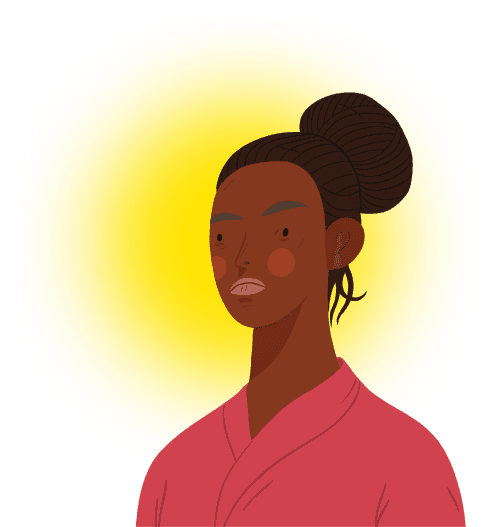
“Police are not my friend, but at the same time, they’re human. I don’t see anyone with their professional clothes on. I see a human being when I look at someone. So when you ask the question ‘friend or foe’: police, occupation wise, foe. But human wise, friend.”
– 33, Black, bisexual, cisgender woman








